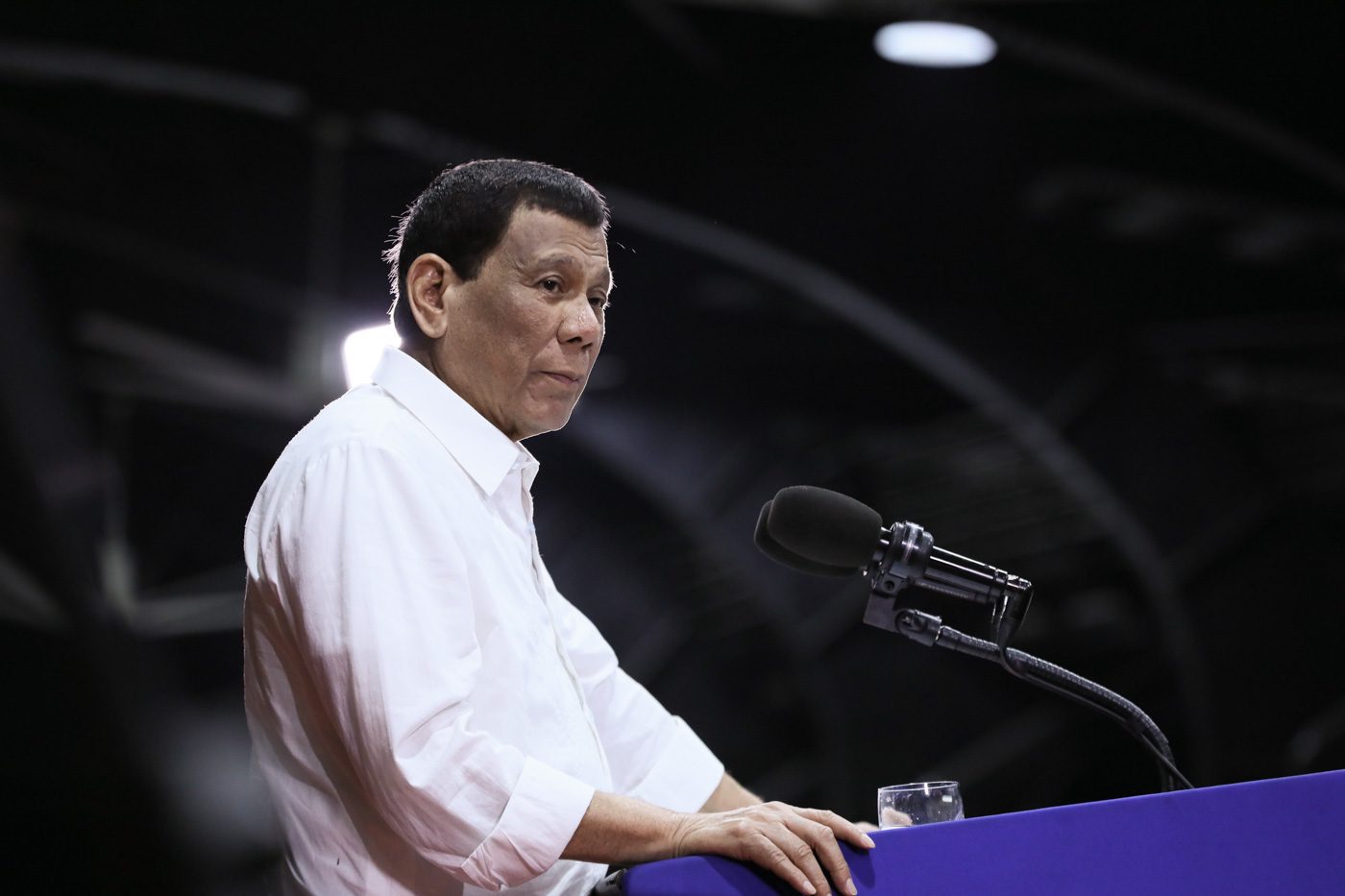SUMMARY
This is AI generated summarization, which may have errors. For context, always refer to the full article.

MANILA, Philippines – President Rodrigo Duterte kept his trust and approval ratings even after the Recto Bank boat sinking that put his administration’s warm ties to China on the spotlight, according to results of the latest Pulse Asia Research, Incorporated survey released on Wednesday, July 17.
Pulse Asia reported that Duterte kept the trust of 85% of Filipinos in June, unchanged from his trust rating in March.
Duterte’s June approval ratings dipped by 2 percentage points to 85% from 87% in March but because Pulse Asia reported an error margin of ± 2.8% for national findings, this decrease is not significant.
The survey was conducted from June 24 to 30, a few weeks after the June 9 sinking of Filipino fishing boat Gem-Ver by a Chinese vessel in Recto (Reed) Bank, within the Philippines’ Exclusive Economic Zone.
During those weeks, the incident, the most heated occurence in the West Philippine Sea in recent years, dominated headlines. The Duterte government’s contradictory responses were also heavily covered by the media at this time.
High trust, approval among poor
Duterte remains the most trusted government official, followed by Senate President Vicente Sotto (73%), Vice President Leni Robredo (52%), Supreme Court Chief Justice Lucas Bersamin (35%), and former Speaker Gloria Macapagal Arroyo (22%). (READ: Robredo, Sotto enjoy approval, trust of more Filipinos – Pulse Asia)
It’s the poorest Filipinos who trust Duterte the most. While 80% of the middle- to upperclass Filipinos (class ABC) said they trust the Chief Executive, the number is 85% and 86% for classes D and E Filipinos, respectively.
Out of all the regions, Mindanao continues to have the most number of residents who trust Duterte (91%). However, this is 5 percentage points lower rating than his March rating in his bailiwick.
It was in Metro Manila where Duterte’s trust ratings saw the biggest improvement compared to his March rating. From 77%, it rose to 83% – a 6-percentage point increase. Meanwhile, his rating remained unchanged in Balance of Luzon (81%) and Visayas (89%).
It’s almost the same story for Duterte’s June approval ratings. His highest approval rating is in his bailiwick of Mindanao, where 91% approve of his performance. But this was down by 6 points from his March approval rating of 97%.
Meanwhile, 81% of Metro Manileños say they approve of his performance, while 82% and 90% say the same thing in Balance of Luzon and Visayas, respectively. These figures were essentially unchanged from the March ratings.
As for economic class, 87% and 85% of class E and D Filipinos approve of Duterte while 82% approve of him among class ABC. His rating among the middle- to upperclass Filipinos in June is an improvement by 5 points from March when 77% of them said they approve of him.
The nationwide survey, based on a sample of 1,200 adults has, a ± 2.8% error margin at the 95% confidence level, while subnational estimates for the geographic areas have the following error margins at 95% confidence level: ± 5.7% for Metro Manila, the rest of Luzon, Visayas, and Mindanao.
Between the last and latest survey period, the other major news were the twin suicide bombings in a minitary camp in Indanan, Sulu, and the deportation of former foreign secretary Albert del Rosario from Hong Kong. – Rappler.com
Add a comment
How does this make you feel?
There are no comments yet. Add your comment to start the conversation.